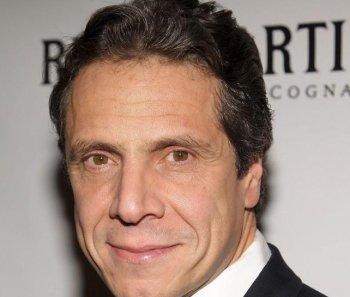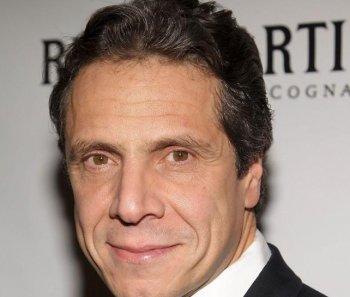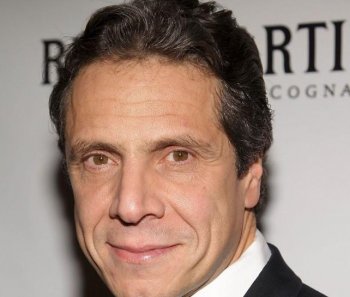NEW YORK—Congressional candidates, Senate seat seekers, and gubernatorial hopefuls have nearly reached the culmination of months of campaigning. The results of Nov. 2 elections will ignite victory celebrations in campaign offices across the country. Of course, with every winner there will be a loser and hope for next time around.
The ballot this Tuesday in New York has one governorship, two Senate seats, the state attorney general’s post, and 29 congressional seats.
New York’s gubernatorial race includes a colorful array of candidates, from a City Council member who was formerly a member of the Black Panthers to YouTube phenomenon Jimmy McMillan from the Rent Is Too Damn High Party. The candidates are vying for the position currently held by David Paterson, who was appointed governor after Eliot Spitzer resigned in 2008 due to a sex-related scandal. Paterson, with dismally low approval ratings throughout most of his time in the office, announced in February that he would not be a Democratic candidate for the office.
Though the climate across the country is favoring Republicans in the midterm elections, with an expected increase of six Republican governorships and a decrease of seven Democratic governorships nationwide, New York is characteristically leaning toward the Democrats.
Primary contender Democrat Andrew Cuomo, currently serving as the state attorney general, has a seemingly comfortable lead over Republican Buffalo businessman Carl Paladino. Sienna College polls released over the weekend have Cuomo with a 25 point lead over Paladino, who has been behind in the polls throughout the campaign and has repeatedly dismissed the importance of the poll numbers.
Cuomo continued to campaign over the weekend, saying to NY1 on Sunday, “How many times have we heard … that somebody’s way ahead in the polls and then they wind up losing, and this is a very uncertain political climate, I wouldn’t take anything for granted.”
Some of the major issues facing the next governor include balancing the state budget in light of the current $9.2 billion deficit, obtaining natural gas through the controversial method of hydraulic fracturing (or hydrofracking) at the Marcellus Shale, and addressing decreased faith in the integrity of the government in Albany, and significant unemployment with 247,000 private sector jobs lost last year. And, of course, no election would be complete without talking about taxes—New Yorkers are taxed more heavily than any other state.
DEMOCRAT ANDREW CUOMO
Cuomo, 52, is currently serving as the state attorney general. He grew up in Queens and attended Fordham University in the Bronx and Albany Law School. He worked as a landscaper, an auto mechanic, and a security guard. Cuomo began his public service career as head of the Transition Committee for his father Mario Cuomo, who served as New York governor from 1983 to 1994.
Cuomo served as assistant secretary of Community Planning and Development at the Department of Housing and Urban Development (HUD) and subsequently as the HUD secretary under President Bill Clinton. In his position with the HUD, he pulled the Federal Housing Association (FHA) out of a deficit to $16 billion dollars into the black. He has been criticized, however, for encouraging banks to hand out mortgage loans that partially contributed to the current economic crisis.
On the issues, in brief:
State budget: Cuomo is calling for a cap on state spending and a salary freeze for state employees. He intends to reduce the number of state agencies by 20 percent by consolidating services between local governments.
Hydrofracking: Cuomo is widely criticized by environmental groups for his support of hydrofracking.
Government integrity: Cuomo promotes a re-examination of partisan redistricting and campaign financing laws, as well as increased transparency of legislator interests and income.
Unemployment: Cuomo says he will hand out tax credits of up to $3,000 for each unemployed New Yorker that a business hires.
Taxes: Cuomo proposes a local property tax cap and no increase in sales or corporate income tax.
Supporters: Cuomo is endorsed by former President Bill Clinton and Mayor Michael Bloomberg. He is criticized for accepting contributions from natural gas companies, considering the sensitive issue of hydrofracking and the special interests these companies have in the matter. Though campaign contributors include Access Industries, which deals in natural resources and chemicals, many of the contributors on his roll have a variety of interests from casino development to maritime transportation.
Continued on the next page...
REPUBLICAN CARL PALADINO
The ballot this Tuesday in New York has one governorship, two Senate seats, the state attorney general’s post, and 29 congressional seats.
New York’s gubernatorial race includes a colorful array of candidates, from a City Council member who was formerly a member of the Black Panthers to YouTube phenomenon Jimmy McMillan from the Rent Is Too Damn High Party. The candidates are vying for the position currently held by David Paterson, who was appointed governor after Eliot Spitzer resigned in 2008 due to a sex-related scandal. Paterson, with dismally low approval ratings throughout most of his time in the office, announced in February that he would not be a Democratic candidate for the office.
Though the climate across the country is favoring Republicans in the midterm elections, with an expected increase of six Republican governorships and a decrease of seven Democratic governorships nationwide, New York is characteristically leaning toward the Democrats.
Primary contender Democrat Andrew Cuomo, currently serving as the state attorney general, has a seemingly comfortable lead over Republican Buffalo businessman Carl Paladino. Sienna College polls released over the weekend have Cuomo with a 25 point lead over Paladino, who has been behind in the polls throughout the campaign and has repeatedly dismissed the importance of the poll numbers.
Cuomo continued to campaign over the weekend, saying to NY1 on Sunday, “How many times have we heard … that somebody’s way ahead in the polls and then they wind up losing, and this is a very uncertain political climate, I wouldn’t take anything for granted.”
Some of the major issues facing the next governor include balancing the state budget in light of the current $9.2 billion deficit, obtaining natural gas through the controversial method of hydraulic fracturing (or hydrofracking) at the Marcellus Shale, and addressing decreased faith in the integrity of the government in Albany, and significant unemployment with 247,000 private sector jobs lost last year. And, of course, no election would be complete without talking about taxes—New Yorkers are taxed more heavily than any other state.
DEMOCRAT ANDREW CUOMO
Cuomo, 52, is currently serving as the state attorney general. He grew up in Queens and attended Fordham University in the Bronx and Albany Law School. He worked as a landscaper, an auto mechanic, and a security guard. Cuomo began his public service career as head of the Transition Committee for his father Mario Cuomo, who served as New York governor from 1983 to 1994.
Cuomo served as assistant secretary of Community Planning and Development at the Department of Housing and Urban Development (HUD) and subsequently as the HUD secretary under President Bill Clinton. In his position with the HUD, he pulled the Federal Housing Association (FHA) out of a deficit to $16 billion dollars into the black. He has been criticized, however, for encouraging banks to hand out mortgage loans that partially contributed to the current economic crisis.
On the issues, in brief:
State budget: Cuomo is calling for a cap on state spending and a salary freeze for state employees. He intends to reduce the number of state agencies by 20 percent by consolidating services between local governments.
Hydrofracking: Cuomo is widely criticized by environmental groups for his support of hydrofracking.
Government integrity: Cuomo promotes a re-examination of partisan redistricting and campaign financing laws, as well as increased transparency of legislator interests and income.
Unemployment: Cuomo says he will hand out tax credits of up to $3,000 for each unemployed New Yorker that a business hires.
Taxes: Cuomo proposes a local property tax cap and no increase in sales or corporate income tax.
Supporters: Cuomo is endorsed by former President Bill Clinton and Mayor Michael Bloomberg. He is criticized for accepting contributions from natural gas companies, considering the sensitive issue of hydrofracking and the special interests these companies have in the matter. Though campaign contributors include Access Industries, which deals in natural resources and chemicals, many of the contributors on his roll have a variety of interests from casino development to maritime transportation.
Continued on the next page...
REPUBLICAN CARL PALADINO







